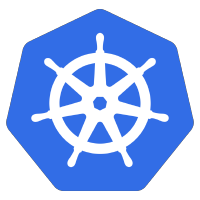 If you need to delete a GKE instance from a node pool, you cannot simply treat the node as a raw VM instance. You must delete the VM instance from the managed instance group of which it is a member.
If you need to delete a GKE instance from a node pool, you cannot simply treat the node as a raw VM instance. You must delete the VM instance from the managed instance group of which it is a member.
A cluster will have an instance group for each region. In a zonal cluster, the challenge is determining which instance group your suspect node is a member of. Below are the commands for showing all the instance groups belonging to a cluster.
# get list of clusters gcloud container clusters list # set variables for cluster cluster_name=cluster-2 location_flag="--region=us-central1" # get managed instance groups for specific cluster $ gcloud container clusters describe $cluster_name $location_flag --format=json | jq '.instanceGroupUrls' | tr -d ' ",' | rev | cut -d/ -f1 | rev [ gke-cluster-2-default-pool-484b01f9-grp gke-cluster-2-default-pool-ba82bf6c-grp gke-cluster-2-default-pool-168508f7-grp ]
But this leaves you with needing to determine which instance group your suspect node is a member of, and that can be done by querying the membership of each managed instance group.
# extracts full instance group URI
igs=$(gcloud container clusters describe $cluster_name $location_flag --format=json | jq '.instanceGroupUrls' | tr -d ' ",' | tail -n+2 | head -n-1)
# list GKE nodes in each instance group
for igline in $igs; do
the_zone=$(echo "$igline" | grep -Po "/zones/\K(.*?)(?=/)")
the_ig=${igline##*/}
echo "== $the_zone,$the_ig =="
gcloud compute instance-groups managed list-instances --zone=$the_zone $the_ig --format="value(instance)"
done
Which outputs each instance zone/group, and then its GKE node membership.
== us-central1-b,gke-cluster-2-default-pool-484b01f9-grp == gke-cluster-2-default-pool-484b01f9-4jdw == us-central1-a,gke-cluster-2-default-pool-ba82bf6c-grp == gke-cluster-2-default-pool-ba82bf6c-r729 == us-central1-f,gke-cluster-2-default-pool-168508f7-grp == gke-cluster-2-default-pool-168508f7-8kj3
Now armed with all the necessary pieces of information, you can delete the GKE node instance.
gke_instance_group=gke-cluster-2-default-pool-168508f7-grp gke_vm_instance=gke-cluster-2-default-pool-168508f7-8kj3 gke_vm_instance_zone=us-central1-f # delete node instance from managed instance group gcloud compute instance-groups managed delete-instances $gke_instance_group --instances=$gke_vm_instance --zone=gke_vm_instance_zone
REFERENCES
google documentation, gcloud compute instance-groups managed
Petko’s coding blog, deleting a GKE node from instance group
NOTES
show zone info for each gke node
# take note of region of your suspected blocker # show cluster gke nodes and their zone kubectl get nodes -o custom-columns='NAME:.metadata.name,ZONE:.metadata.labels.failure-domain\.beta\.kubernetes\.io/zone,VER:.status.nodeInfo.kubeletVersion'